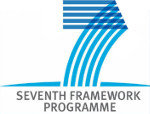Associations Between Psychosocial Well-Being, Stressful Life Events and Emotion-Driven Impulsiveness in European Adolescents
Do, S. ; Coumans, J.M.J. ; Börnhorst, C. ; Pohlabeln, H. ; Reisch, L.A. ; Danner, U.N. ; Russo, P. ; Veidebaum, T. ; Tornaritis, M. ; Molnár, D. ; Hunsberger, M. ; De Henauw, S. ; Moreno, L.A. (Universidad de Zaragoza) ; Ahrens, W. ; Hebestreit, A.
Resumen: Knowing the extent to which mental well-being and stressful life events during adolescence contribute to personality characteristics related to risk-taking behaviors, such as emotion-driven impulsiveness, is highly relevant for the development of health promotion measures. This study examined whether psychosocial well-being and different stressful life events are associated with emotion-driven impulsiveness. In total, 3, 031 adolescents (52% girls; Mage = 13.6 years) were included from the I. Family Study, a cross-sectional examination on lifestyle-related behaviors conducted across eight European countries in 2013/14. Linear mixed-effects regression models showed that higher psychosocial well-being was associated with lower emotion-driven impulsiveness independent of socio-demographic, health-related, and parental variables. A higher number of stressful life events was associated with higher emotion-driven impulsiveness. Psychosocial well-being and stressful life events need to be further considered in the development and tailoring of health promotion strategies that aim to reduce emotion-driven impulsiveness. © 2021, The Author(s).
Idioma: Inglés
DOI: 10.1007/s10964-021-01533-w
Año: 2022
Publicado en: JOURNAL OF YOUTH AND ADOLESCENCE 51, 6 (2022), 1106-1117
ISSN: 0047-2891
Factor impacto JCR: 4.9 (2022)
Categ. JCR: PSYCHOLOGY, DEVELOPMENTAL rank: 9 / 77 = 0.117 (2022) - Q1 - T1
Factor impacto CITESCORE: 7.6 - Psychology (Q1) - Social Sciences (Q1)
Factor impacto SCIMAGO: 2.03 - Developmental and Educational Psychology (Q1) - Social Sciences (miscellaneous) (Q1) - Social Psychology (Q1) - Education (Q1)
Financiación: info:eu-repo/grantAgreement/EC/FP7/266044/EU/Determinants of eating behaviour in European children, adolescents and their parents/I.FAMILY
Tipo y forma: Article (Published version)
Área (Departamento): Área Enfermería (Dpto. Fisiatría y Enfermería)
Exportado de SIDERAL (2024-03-18-13:12:16)
Visitas y descargas
Idioma: Inglés
DOI: 10.1007/s10964-021-01533-w
Año: 2022
Publicado en: JOURNAL OF YOUTH AND ADOLESCENCE 51, 6 (2022), 1106-1117
ISSN: 0047-2891
Factor impacto JCR: 4.9 (2022)
Categ. JCR: PSYCHOLOGY, DEVELOPMENTAL rank: 9 / 77 = 0.117 (2022) - Q1 - T1
Factor impacto CITESCORE: 7.6 - Psychology (Q1) - Social Sciences (Q1)
Factor impacto SCIMAGO: 2.03 - Developmental and Educational Psychology (Q1) - Social Sciences (miscellaneous) (Q1) - Social Psychology (Q1) - Education (Q1)
Financiación: info:eu-repo/grantAgreement/EC/FP7/266044/EU/Determinants of eating behaviour in European children, adolescents and their parents/I.FAMILY
Tipo y forma: Article (Published version)
Área (Departamento): Área Enfermería (Dpto. Fisiatría y Enfermería)
Exportado de SIDERAL (2024-03-18-13:12:16)
Permalink:
Visitas y descargas
Este artículo se encuentra en las siguientes colecciones:
articulos > articulos-por-area > enfermeria
Notice créée le 2022-05-27, modifiée le 2024-03-19
